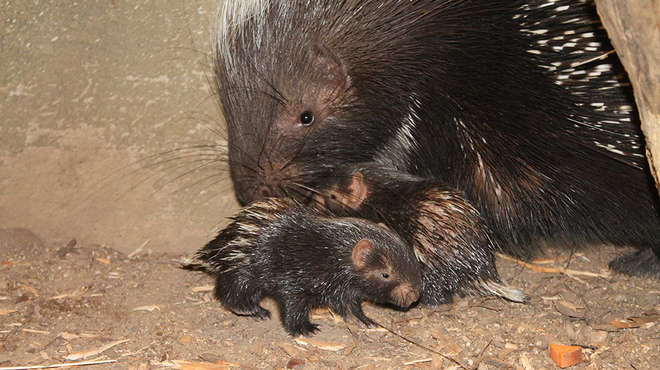
Breeding schemes for endangered animals such as rhinos and monkeys are being harmed by Brexit red tape - zoos have warned.
Measures and limitations that have come into place since Britain left the European Union have also slowed down a project to reinhabit bison into the Kent countryside.
The Wilder Blean project near Canterbury had hoped their herd of females could be joined by a bull last August but paperwork issues meant his arrival from Germany could not be completed until the end of 2022.
Wilder Blean said the issue is particularly key for bison, with just 54 left in zoos before they were saved from extinction.
Mark Habben, a director at the Wildwood Trust, which worked on the bison scheme, said: “The main issue is the paperwork for animal requirements has all changed.
“Everyone needs to be up to speed but it appears a lot of paperwork does not match up and that creates huge barriers.
“[And this is coming] at a point in time when we are putting in place nature based solutions to the climate crisis.”

Mr Habben said that DEFRA was not consulted during Brexit negotiations even though it “should have been” a topic up for discussion.
“We knew it was going to be laborious and a huge slog,” he said.
“Now we need to be having discussions with DEFRA about how we can move forward.”
Delays have also been felt at London Zoo where an endangered golden lion tamarin had a transfer delayed by 17 months, while a similar length of time passed before Colchester Zoo could receive a vulnerable pileated gibbon.
ZSL London Zoo is among those to sign an open letter asking Rishi Sunak to fix the logistical problem after just over 200 animals were transferred between British and European zoos and aquariums last year. Prior to Britain leaving the European Union the number was closer to 1,400.
Among the 75 signatories are Sea Life London Aquarium, Chessington World of Adventures in Surrey, Blackpool Zoo and Twycross Zoo in Warwickshire.
Durrell Zoo in Jersey has reported it is now easier to send animals to Australia and the US than France - which now costs £8,000 to complete a transfer that would have cost £1,000 before Brexit.
The collaboration of zoos have expressed the need for inter-Europe transfers with many animals facing extinction in the wild - with around one quarter of the European zoo population of black rhinos currently within the UK.
Malcolm Fitzpatrick, chief zoological officer at ZSL’s conservation zoos, London and Whipsnade, said: “The UK Government and the EU must urgently come together to help the UK conservation community continue their vital work saving species from extinction.
“With the world’s biodiversity under more pressure than ever, a new path must be forged through the current red tape to allow conservationists to resume a full programme of international collaboration - protecting threatened species.”
A spokesman for DEFRA said: “We are clear that the movement of zoo animals between the UK and EU should continue, and are engaging with them to agree a pragmatic resolution.”





